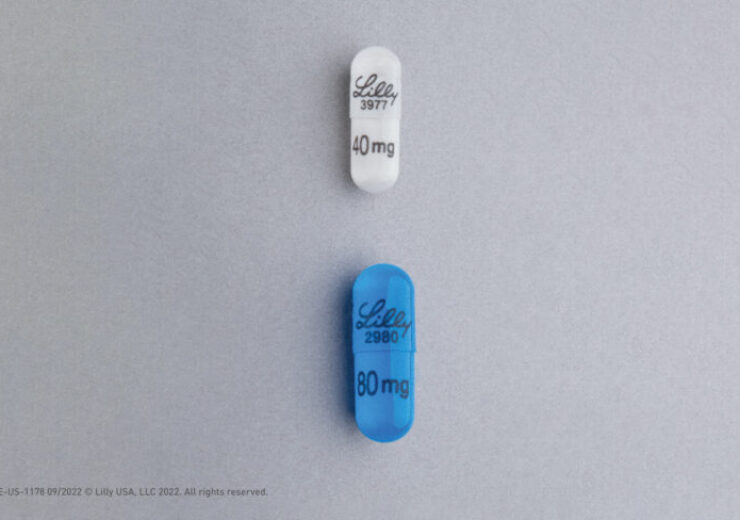In the trial, the RET kinase inhibitor showed a clinically meaningful and statistically significant improvement in progression-free survival as per a pre-specified interim efficacy analysis carried out by IDMC

Product shot of Retevmo 40mg and 80mg capsules. (Credit: Lilly)
Eli Lilly and Company (Lilly) has announced that Retevmo (selpercatinib) has met the primary endpoint of the Phase 3 LIBRETTO-431 study in adults with newly diagnosed advanced or metastatic rearranged during transfection (RET) fusion-positive non-small cell lung cancer (NSCLC).
Retevmo, earlier known as LOXO-292, is said to be a highly selective and potent RET kinase inhibitor with central nervous system (CNS) activity.
The LIBRETTO-431 study assessed it as an initial treatment in NSCLC patients compared to platinum-based chemotherapy (cisplatin or carboplatin) plus pemetrexed, with or without pembrolizumab.
In the trial, the RET kinase inhibitor showed a clinically meaningful and statistically significant improvement in progression-free survival (PFS), which is the primary endpoint.
According to the American pharmaceutical major, the result was based on a pre-specified interim efficacy analysis carried out by an independent data monitoring committee (IDMC).
Loxo@Lilly chief medical officer David Hyman said: “The LIBRETTO-431 trial aims to answer an important question about the selection of initial treatment for people with advanced RET fusion-positive NSCLC and these results suggest Retevmo should be considered a first-line standard of care.
“Additionally, this clinically meaningful achievement of improved outcomes underscores the importance of timely and comprehensive genomic testing to inform initial treatment decisions for all patients with NSCLC.
“The results of this study provide further confirmation that RET status – like EGFR, ALK, and others in the family of lung cancer oncogenic drivers – should be known prior to initiating therapy.”
LIBRETTO-431 is a randomised trial involving 261 patients. The participants were randomised in a ratio of 2:1 to receive either Retevmo or platinum-based and pemetrexed therapy with or without pembrolizumab as initial treatment.
The secondary endpoints included overall survival (OS), overall response rate (ORR), duration of response (DoR), and intracranial ORR.
The recent findings follow the data from the LIBRETTO-001 clinical trial of patients with RET-driven cancers treated with a RET inhibitor.
In September 2022, Retevmo was approved in the US for the treatment of locally advanced or metastatic solid tumours with a RET gene fusion, after prior systemic treatment.
